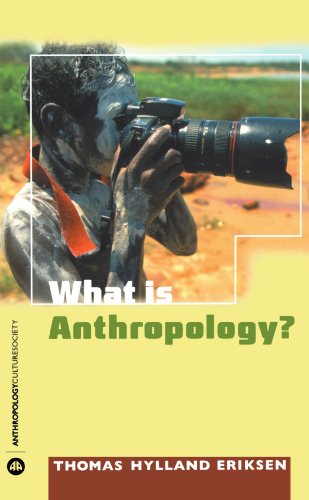

Most ebook files are in PDF format, so you can easily read them using various software such as Foxit Reader or directly on the Google Chrome browser.
Some ebook files are released by publishers in other formats such as .awz, .mobi, .epub, .fb2, etc. You may need to install specific software to read these formats on mobile/PC, such as Calibre.
Please read the tutorial at this link: https://ebookbell.com/faq
We offer FREE conversion to the popular formats you request; however, this may take some time. Therefore, right after payment, please email us, and we will try to provide the service as quickly as possible.
For some exceptional file formats or broken links (if any), please refrain from opening any disputes. Instead, email us first, and we will try to assist within a maximum of 6 hours.
EbookBell Team

5.0
100 reviewsLucid and accessible, What is Anthropology? draws examples from current affairs as well as anthropological studies. The first section presents the history of anthropology, its unique research methods and some of its central concepts, such as society, culture and translation. Eriksen shows how anthropology helps to shape contemporary thinking and why it is inherently radical.
In the second section he discusses core issues in greater detail. Reciprocity, or exchange, or gift-giving, is shown to be the basis of every society. Eriksen examines kinship in traditional societies, and shows why it remains important in complex ones. He argues nature is partly cultural, and explores anthropological views on human nature as well as ecology. He delves into cultural relativism and the problem of understanding others. Finally, he describes the paradoxes of identity – ethnic, national, religious or postmodern, as the case may be.